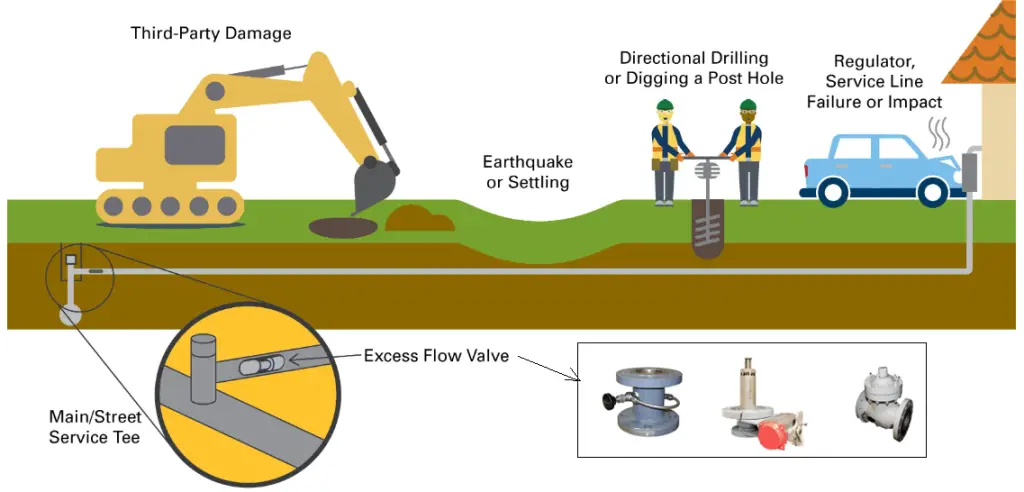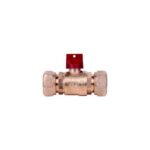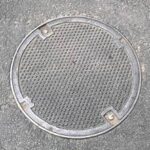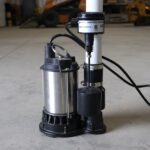Excess Flow Valves (EFVs) are essential components in the world of gas distribution and safety. Even though they are not as well-known as some other gas-related devices, their contribution to preventing potentially catastrophic accidents can not be ignored. As they are mainly installed in gaseous systems, they are also known as gas excess flow valves. In this blog post, we’ll delve into the world of Excess Flow Valves, exploring what they are, how they work, and why they are so important for safeguarding our gas supply.
What are Excess Flow Valves?
An Excess Flow Valve is a mechanical safety device designed to automatically close when there is a sudden increase in gas flow beyond a predetermined threshold. These valves are typically installed in gas pipelines or service lines that deliver gas to homes, businesses, and industrial facilities. The primary purpose of an EFV is to minimize the release of gas in the event of a rupture, significant break, puncture, or damage to the pipeline.
Working of Excess Flow Valves
The operation of an Excess Flow Valve is quite simple and straightforward. It relies on a simple yet effective mechanism that responds to changes in gas flow. Here’s how it works:
- Baseline Flow: Under normal operating conditions, when gas flows steadily through the pipeline at or below its designed capacity, the EFV remains fully open, allowing gas to pass through unobstructed.
- Excess Flow Detection: If there is a sudden and significant increase in gas flow, such as a pipeline rupture due to excavation or damage, the EFV’s sensing mechanism detects the excess flow.
- Closure Mechanism: Once the EFV detects excess flow, it activates a closure mechanism. This mechanism involves a valve that shuts off the gas supply, blocking further flow. These are usually spring-loaded flow shut-off valves. When the flow through the valve exceeds a previously set closing flow rate in the direction marked on the valve, the Excess Flow valve will close.
- Limiting Gas Release: By quickly closing off the pipeline, the EFV limits the release of gas, helping to prevent potentially dangerous situations like fires or explosions. When the excess flow of gas has ceased or service line gas pressure is significantly reduced, the valve automatically resets or reopens.

Importance of Excess Flow Valves
Excess flow valves offer various advantages as mentioned below:
- Safety: EFVs are crucial for ensuring the safety of gas distribution systems. They reduce the risk of gas leaks and the subsequent dangers associated with uncontrolled gas flow, such as fires and explosions.
- Property Protection: EFVs can protect homes and properties from damage caused by gas leaks. The timely closure of the valve helps contain the gas and prevents it from entering buildings or ignition sources.
- Environmental Protection: Gas leaks not only pose a safety risk but can also harm the environment. By minimizing gas release during ruptures or accidents, EFVs contribute to environmental protection efforts.
- Cost Savings: Preventing gas leaks and their associated damages can save utility companies and consumers significant amounts of money in repair and cleanup costs.
- Regulatory Compliance: In many regions, regulations mandate the installation of Excess Flow Valves, especially for new gas service lines or when making significant pipeline modifications. Compliance with these regulations is essential for both safety and legal reasons.
Applications of Excess Flow Valves
Excess Flow Valves (EFVs) find applications in various industries and settings where the control and safety of gas flow are critical. Some of the notable applications of excess flow valves are LP gas, butane, anhydrous ammonia, anhydrous chlorine, nitrogen air, and others. They are installed in natural gas pipelines, residential gas lines, gas storage facilities, propane tanks and systems, high-pressure gas systems, emergency gas shutdown systems, and many others. To cater to the various needs, Excess Flow valves are manufactured in a wide variety of pressure classes, materials, flange designs, and end connections.
Excess Flow Valves quietly work behind the scenes, ready to spring into action when needed most. By promptly closing off gas flow during sudden surges, they protect lives, property, and the environment. To give an example, If an excavator accidentally digs up the natural gas service line and damages the line, the Excess Flow Valve will automatically minimize or stop the flow of natural gas. Understanding the importance of EFVs and ensuring their proper installation is a crucial step in maintaining a safe and reliable gas supply system.






